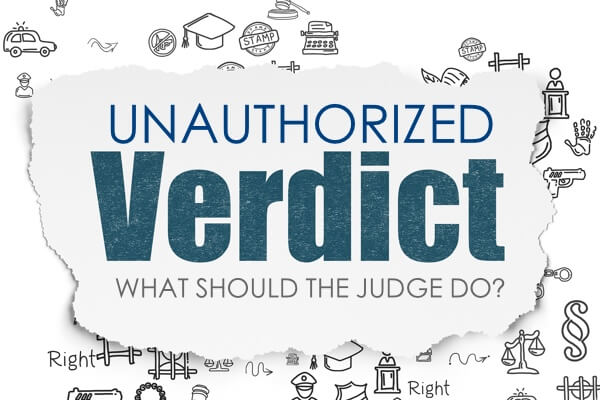
What Should the Trial Judge Do When the Jury Returns an Unauthorized Verdict?
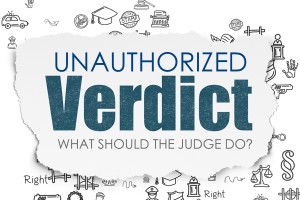 At the trial of Reginald Nixon for burglary of a habitation and evading arrest, the jury returned a guilty verdict and sentence of 7 years for the burglary and 9 years for the evading. However, the verdict form contained a handwritten note that read: “*To be served consecutively, not concurrently.” A consecutive sentence would mean that the two verdicts are added together to make the actual prison term 16 years. The jury had previously asked the judge whether the sentences would run concurrently and the judge refused to answer them, advising them to simply continue with their deliberations. Without an answer to their question, the jury took the matter into their own hands.
At the trial of Reginald Nixon for burglary of a habitation and evading arrest, the jury returned a guilty verdict and sentence of 7 years for the burglary and 9 years for the evading. However, the verdict form contained a handwritten note that read: “*To be served consecutively, not concurrently.” A consecutive sentence would mean that the two verdicts are added together to make the actual prison term 16 years. The jury had previously asked the judge whether the sentences would run concurrently and the judge refused to answer them, advising them to simply continue with their deliberations. Without an answer to their question, the jury took the matter into their own hands.
The problem with the jury’s verdict of 7 years and 9 years to run consecutively is that it is not an authorized sentence. Under Texas law, the sentences in Nixon’s case were required to run concurrently rather than consecutively. As a result, the trial judge refused to accept the sentences and reform them to run concurrently (as he was urged to do by Nixon’s counsel). Instead, the judge sent the jury back with a note advising them that the sentences cannot run consecutively. The jury soon returned with new verdicts of 16 years confinement for each offense, which the judge accepted.
Nixon appealed, again urging that the trial judge erred by failing to accept and reform the original jury verdicts. The 2nd Court of Appeals (Fort Worth) affirmed the trial court’s judgments and “reasoned that while the judge may have had the authority to reform the verdict under Article 37.10, he also had the authority to refuse the verdict and return the jury to their deliberations pursuant to this Court’s opinion in Muniz v. State [573, S.W.2d 792 (Tex. Crim. App. 1978)].”
The Texas Court of Criminal Appeals granted review and now reverses the holding of the 2nd Court of Appeals. The CCA highlighted the changes that were made in 1985 when the legislature enacted Section 37.10(b) of the Texas Code of Criminal Procedure. This change distinguished between “informal” and “unauthorized” verdicts. For unauthorized verdicts, Section 37.10(b) provides:
If the jury assesses punishment in a case and in the verdict assesses both punishment that is authorized by law for the offense and punishment that is not authorized by law for the offense, the court shall reform the verdict to show the punishment authorized by law and to omit the punishment not authorized by law.
CCA explained that the lower court’s reliance on Muniz was misplaced since Section 37.10(b) was not enacted at the time Muniz was decided. Further, the verdict form in Muniz was incomplete, unlike the verdict in this case, which was complete but contained an unauthorized portion.
The CCA concluded by holding:
Although the terms of confinement were 45 authorized punishments, the attempted cumulation was punishment unauthorized by law. Article 37.10(b)’s plain language is clear that, when the jury assesses punishment and returns a verdict assessing punishment that is both authorized and unauthorized by law, “the court shall reform the verdict to show the punishment authorized by law and to omit the punishment not authorized by law.” Accordingly, we hold that the judge erred in failing to accept the initial punishment verdicts and omit the jury’s unauthorized attempt to stack the terms of confinement.
Judge Alcala and Judge Yeary dissented.

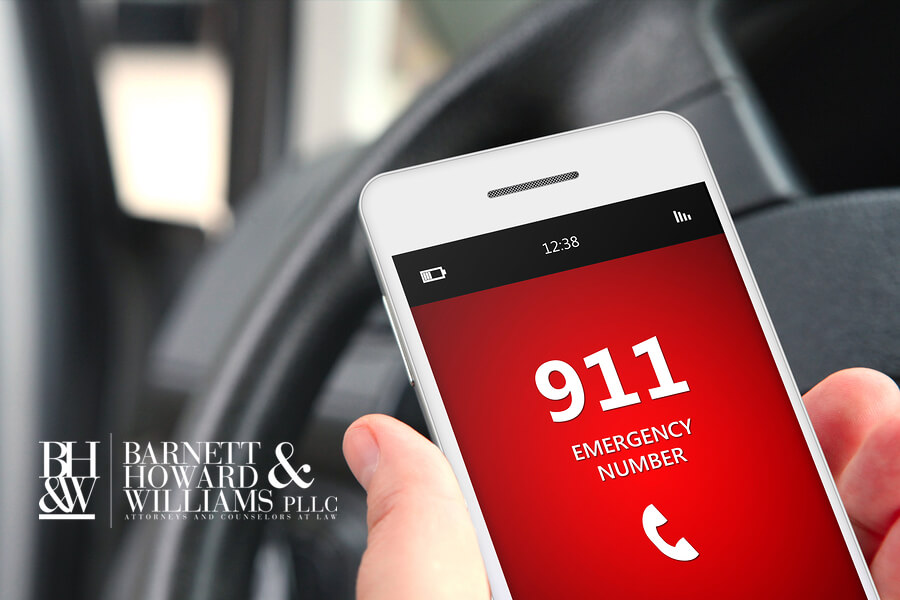
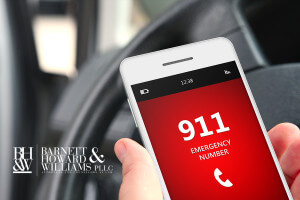 In February 2014, David Schumm and his wife were arguing in their home when she tried to place a 911 call. His wife testified that he prevented her from making the call by taking her cell phone. Fearing an assault, she ran outside, screaming for help. Schumm allegedly followed her outside, dragged her onto their porch and “strangled” her. At trial, Schumm denied all assaultive conduct and denied taking her cell phone. Schumm was charged in two separate cases with Interference with 911 Call and with Assault Family Violence with Impeding Breath. Tex. Penal Code Ann. § 42.062 and § 22.01(b)(2)(B) (West Supp. 2015). Schumm was acquitted of the felony assault charge at trial.
In February 2014, David Schumm and his wife were arguing in their home when she tried to place a 911 call. His wife testified that he prevented her from making the call by taking her cell phone. Fearing an assault, she ran outside, screaming for help. Schumm allegedly followed her outside, dragged her onto their porch and “strangled” her. At trial, Schumm denied all assaultive conduct and denied taking her cell phone. Schumm was charged in two separate cases with Interference with 911 Call and with Assault Family Violence with Impeding Breath. Tex. Penal Code Ann. § 42.062 and § 22.01(b)(2)(B) (West Supp. 2015). Schumm was acquitted of the felony assault charge at trial.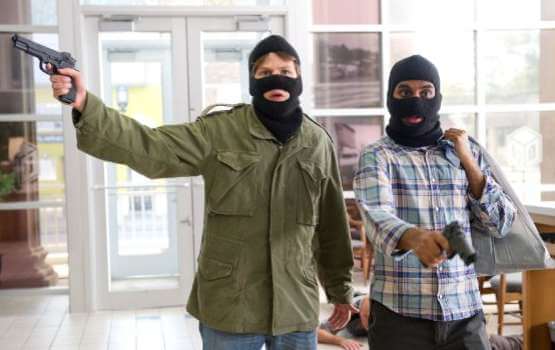
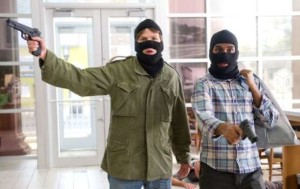 Criminal law disfavors the testimony of an accomplice, for good reason. The policy behind this is clear – factfinders should be leary of trusting those who have a substantial stake in the litigation, especially those with a direct liberty interest. A few years back, the 2nd District Court of Appeals (Fort Worth) provided a good synopsis of the Accomplice Witness Rule, which I felt was worth sharing. The following excerpt is taken from
Criminal law disfavors the testimony of an accomplice, for good reason. The policy behind this is clear – factfinders should be leary of trusting those who have a substantial stake in the litigation, especially those with a direct liberty interest. A few years back, the 2nd District Court of Appeals (Fort Worth) provided a good synopsis of the Accomplice Witness Rule, which I felt was worth sharing. The following excerpt is taken from 
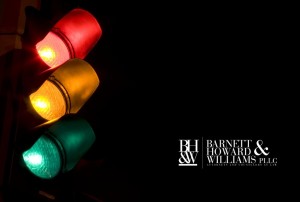


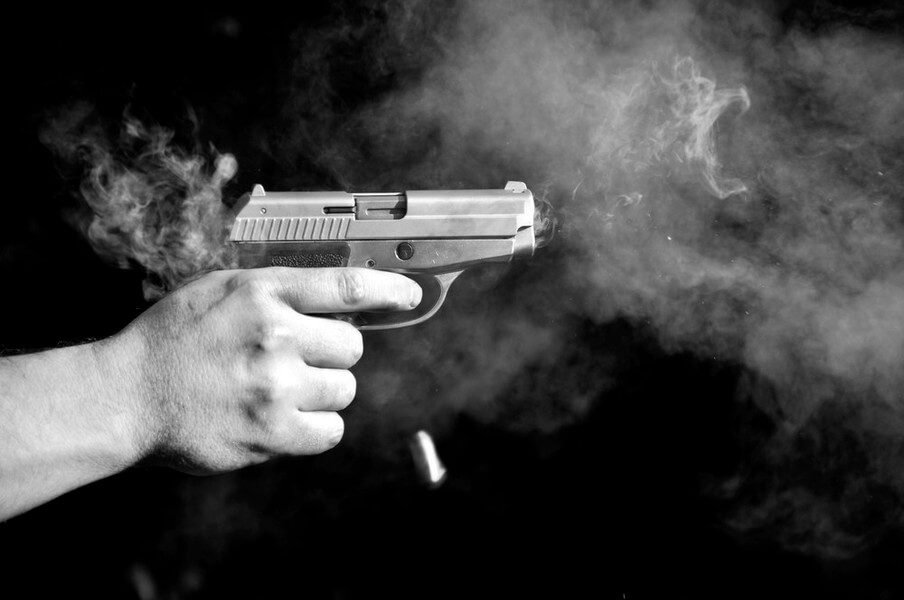
 In
In 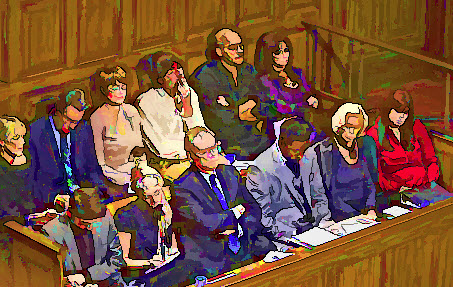
 A felony jury trial in Texas requires 12 jurors (with limited exceptions). The defense can waive that requirement under certain circumstances, and jurors can be excused under certain circumstances. But generally, a felony jury panel must have 12. Below, we discuss a case in Denton County where the jury started with 12 and then went to 11 because a juror could not understand the English language well enough to serve.
A felony jury trial in Texas requires 12 jurors (with limited exceptions). The defense can waive that requirement under certain circumstances, and jurors can be excused under certain circumstances. But generally, a felony jury panel must have 12. Below, we discuss a case in Denton County where the jury started with 12 and then went to 11 because a juror could not understand the English language well enough to serve.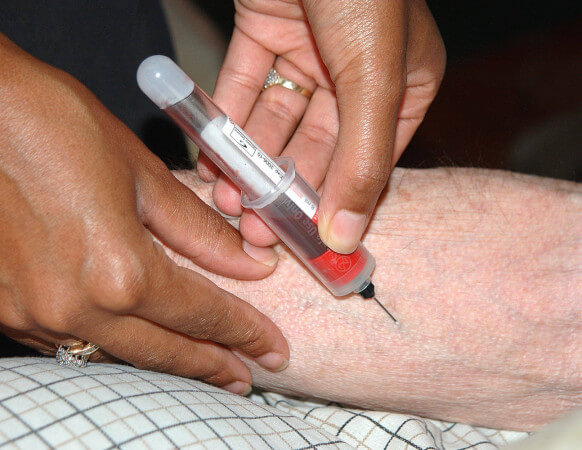
 Mosquitoes are pesky little things. They land on you, insert a sharp needle-like nose into your arm and suck your blood without even asking for permission. Well, like the hard slap of a hand on top of one of these pests, Texas courts are finally falling in line behind the Supreme Court’s ruling in Missouri v. McNeely (133 S. Ct. 1551 (2013)) striking down warrantless blood draws of a driver’s blood in DWI cases.
Mosquitoes are pesky little things. They land on you, insert a sharp needle-like nose into your arm and suck your blood without even asking for permission. Well, like the hard slap of a hand on top of one of these pests, Texas courts are finally falling in line behind the Supreme Court’s ruling in Missouri v. McNeely (133 S. Ct. 1551 (2013)) striking down warrantless blood draws of a driver’s blood in DWI cases.
 In many ways, Texas Court of Criminal Appeals also acts the State’s highest traffic court. What follows is a synopsis of
In many ways, Texas Court of Criminal Appeals also acts the State’s highest traffic court. What follows is a synopsis of 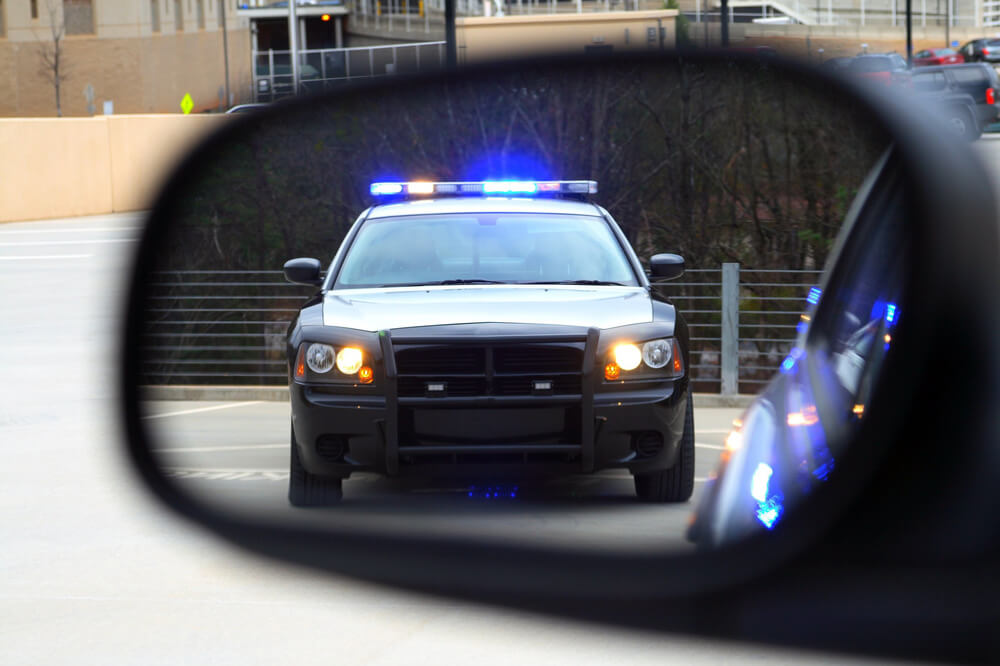
 You can’t believe anything he says. He tries to sound intelligent and reliable, but falls far short. Did you think I was writing about a political candidate? Nope. A police officer.
You can’t believe anything he says. He tries to sound intelligent and reliable, but falls far short. Did you think I was writing about a political candidate? Nope. A police officer.





